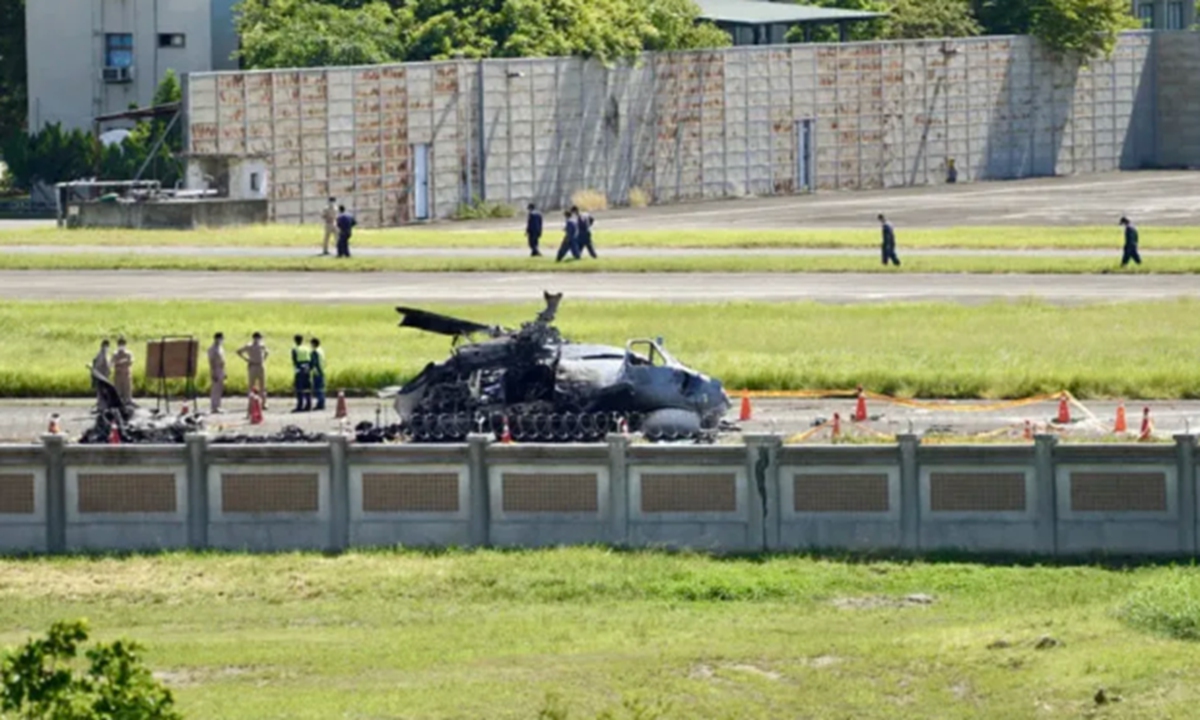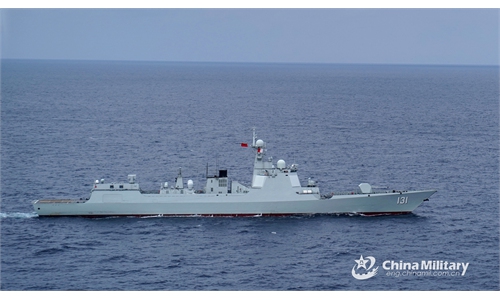4th helicopter crash in two years in Taiwan military shows ‘low capacity’ of island defense

A US-made S-70C anti-submarine helicopter crashed in Kaohsiung, the island of Taiwan island on June 22, injuring four local officers and killing one. Screenshot from Taiwan-based media
A US-made S-70C anti-submarine helicopter with over 30 years of service crashed in Taiwan island on Wednesday, injuring four local officers and killing one.
Taiwan-based media confirmed the death of the crew chief on Thursday night, saying based on what the control tower observed and the pilot's description of the incident, the helicopter's tail rotor failure caused the crash.
As the main-force anti-submarine helicopter of Taiwan authorities' navy, the Sikorsky-made S-70C was first delivered to the island in July 1990. Over the past 30 years, that type of helicopter has crashed three times in 1994, 2005 and 2008, causing seven soldiers' death.
Shu Hsiao-huang, a scholar from an institute affiliated with Taiwan's defense authority, told local media that the island has 17 S-70C anti-submarine helicopters, of which 10 have been in service for more than 30 years.
Andy Chiu, a "lawmaker" from Taiwan People's Party, said only the engine and escape equipment have been upgraded over the years. In addition, the navy's current nine 500MD aircraft that are still in service are more than 40 years old, with outdated performance and great safety risks.
Song Zhongping, a Chinese military expert and TV commentator, told the Global Times on Friday that the crash offered Taiwan authorities an excuse to renew their demand for new aircraft from the US.
Experts from the mainland said seeking military sales from the US is only a means for Taiwan secessionists to embolden themselves but won't change the huge gap in military power between the two sides of the Taiwan Straits. Under the DPP's strategy of relying on the US for secession, it would not be surprising if a tragedy like the helicopter crash happens again.
Song said the US is not willing to sell high-end equipment to Taiwan because it is afraid that the People's Liberation Army (PLA) would take it for research after the possible reunification by force. "Taiwan's weapons and equipment will have almost no use if the conflict occurred. And secessionists can only embolden themselves politically and militarily through reliance on the US at this stage."
The helicopter crash is also the 4th of its kind in two years on the island of Taiwan. In January 2020, Shen Yi-ming, the "military chief of general staff" on the island, was among eight people killed during a UH-60M Black Hawk helicopter crash.
"Taiwan's aircraft crash has even become normal … If the old aircraft cannot be effectively maintained, the performance would be greatly reduced. In addition, inadequate human training can also lead to this result," Song said.
Whether it is F16, Mirage 2000, or other types of helicopters, crash incidents are unlikely to decrease in the future, Song said.
There's a motto of Taiwan's regional naval anti-submarine aviation group, saying "discover problems and solve them," but what we see is that they can neither identify the problem nor solve the problem, Song said.


